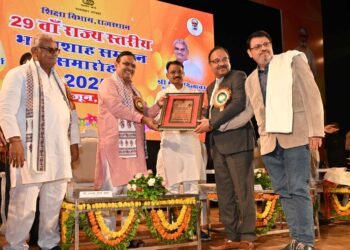The nation has made great strides in ensuring access to electricity, giving resources to rural Indian communities.Many of these settlements are on the peripheries of important Protected Areas that are home to some of India’s rarest and endangered wildlife. Deployment of renewable energy, notably solar has boosted energy efficiency,reducing the exposure and dependency from biomass cooking stoves, kerosene, agricultural waste and dung to meet their cooking, lighting and heating requirements.
This year when one of decades severest cyclone, Amphan hit West Bengal and Bangladesh, it destroyed everything that came in itspath of destruction. The major impact of the cyclone was witnessed in the ecologically fragile Indian Sundarbans delta, home to one of the largest mangrove forests in the world with a population of over 4.5 million people.Most of the Sunderbans remained without power for up to a week.The cyclone breached embankments, uprooted trees, and destroyed homes, tearing electric poles, snapping wires and plunged major part of Sundarbans in darkness.Residents were forced to take refuge in disaster relief shelters.
However, the Satjelia Island in the Sundarbanswith approximately 8,293 households stood out as an exception where the community solar microgrids set up by WWF India in partnership with Schneider Electric held the fort and continued to serve communities in an important life-supporting way.
A community solar microgrid is a small energy system planned, designed and installed to provide reliable and clean energy for vital community facilities and assets within a defined area.The standalone Solar PV systems/ micro grids proved to be much a viable option for sustainable energy solutions for island-based communities in Sundarbans. A huge benefit to the residents of Sundarbans is that there is no issue of load shedding or power scarcity in villages lit up by solar microgrids, which was one of the problems faced earlier.
Project Sahasra Jyoti, an energy access project towards the sustainable development of Indian Sundarbans. This project was initiated by WWF-India in 2016to help communities that were settled in this region, with the prime goal of lightening up thousand households through solar powered energy access solutions. Schneider electric, being a global expert in energy joined hands as technology partner as a part of its CSR initiative and installed solar micro grids that are community owned, controlled and managed, thus benefitting more than 2000 men, women and children directly. 60 per cent of these electrified households sit below the poverty line.
As part of the initiative, the island now has 6 DC micro grids, with a combined installed capacity of 84.12 KWpowering over 700 households, 8 public institutions including small businesses and rural institutions (schools, disaster relief shelter etc.) and over 80 street lights on the forest fringe, being implemented by Schneider Electric. Electricity from the microgrid enables each household to use three LED lamps, a fan, two switchboards with plug points for cell phone charging, and other appliances.
The energy systems have been planned, designed and installed in consultation with Village Energy Committees who manage and operate these systems. WWF-India has also transferred the ownership of all DC micro grids to the local gram panchayat, making this the first village in the region to successfully manage solar micro grids at a scale.These community-owned, managed and operated solar micro grid systems are helping forest fringe communities to move in the trajectory of sustainable development.
An interestingoutcomethat has come out from this projectisthat, due to well-lit human settlements, the risks associated with negative human-wildlife interactions has come down significantly, especially with tigers, leading to increased support for environmentconservation. It has helped increase the average longevity of inhabitants as snake bites and deaths due to tiger attacks have reduced due to presence of well-lit streets and paths during the night time.
Solar micro grids have also created an enormous impact by easing the lives of the people, opening new sustainable socio-economic development opportunities and delivering safe, reliable, affordable, and environment-friendly electricity. With access to energy, young children now have a brighter future as lighting in their home allows more time to study in the evenings.




















